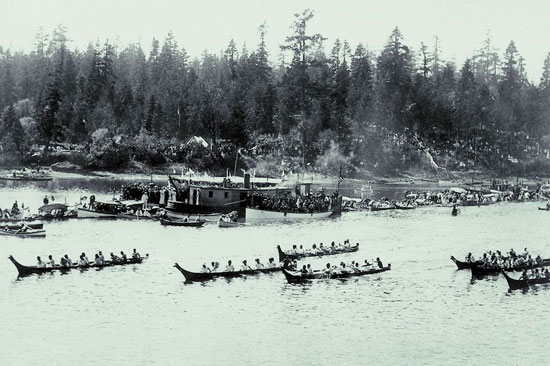The Right Questions, Part 1
Now that you know what to look for in a text and how to describe it, you are ready to learn how to ask the text for the information and how to hear the answers. First, read the excerpt below from Lieutenant James King, an early American explorer. Then go to the next page.

|
| The greatest number of the Canoes remained in a cluster around us til ten O'clock... |
"The greatest number of the Canoes remained in a cluster around us til ten O'clock, & as they had no arms, & appeared very friendly, we did not care how long they staid to entertain themselves, & perhaps us: a man repeated a few words in tune, & regulated the meaning by beating against the Canoe sides, after which they all joined in a song, that was by no means unpleasant to the Ear.
A young man with a remarkable soft effeminate voice afterward sung by himself, but he ended so suddenly & unexpectedly, which being accompanied by a peculiar gesture, made us all laugh, & he finding that we were not ill pleased repeated his song several times.
As they were now very attentive & quiet in list'ning to their diversions, we judg'd they might like our musick, & we ordered the Fife & drum to lay a tune; these were the only people we had seen that ever paid the smallest attention to those or any of our musical Instruments, if we except the drum, & that only I suppose from its noise & resemblance to their own drums; they observed the profoundest silence, & we were sorry that the dark hindered our seeing the effect of this musick on their countenances.
Not to be outdone in politeness they gave us another song, & we then entertained them with French horns, to which they were equally attentive, but have us no more songs in return, & soon after went away, excepting a few boats that kept paddling around us all that night which was a very cold one."
(From the journal of Lieut. James King, 1778)